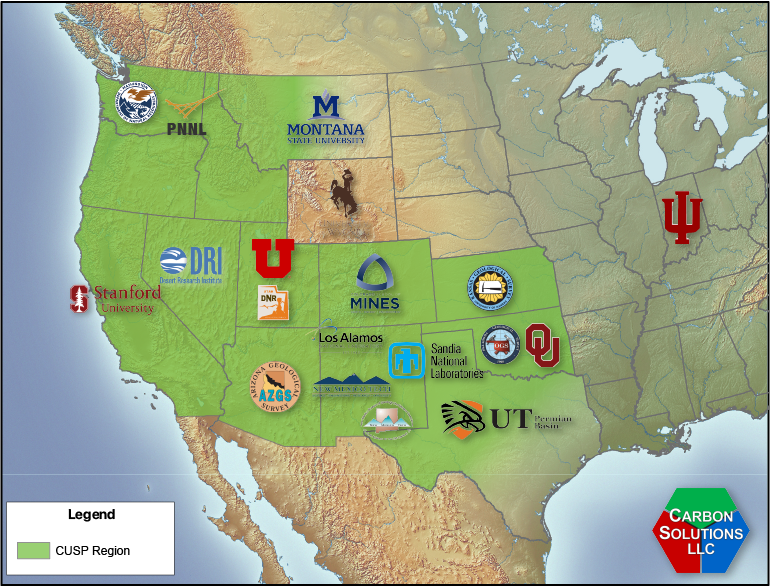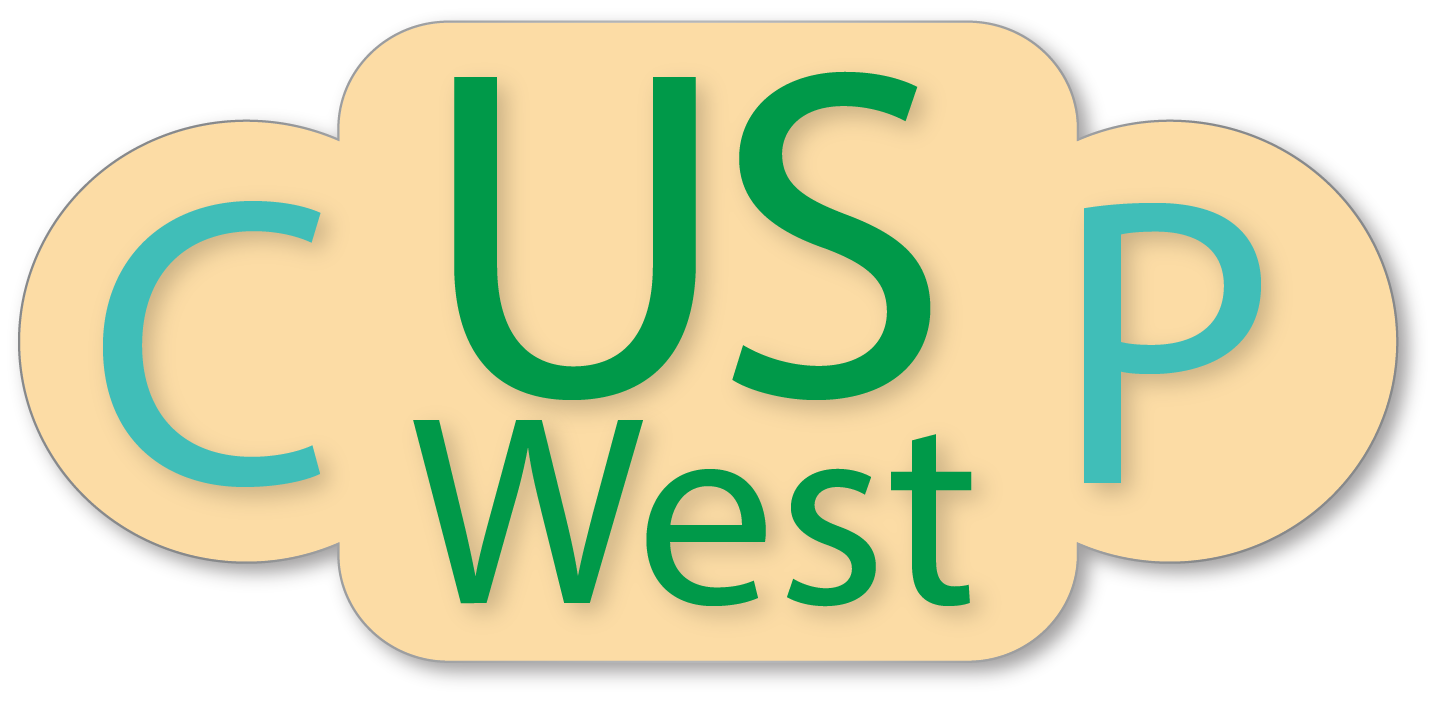Carbon Utilization and Storage Partnership (CUSP)
CUSP is a Department of Energy-funded Regional Initiative established to accelerate onshore CCUS technology deployment in the Western Region of the United States.

Carbon Utilization and Storage Partnership (CUSP)
CUSP is a Department of Energy-funded Regional Initiative established to accelerate onshore CCUS technology deployment in the Western Region of the United States.
Washington
WGS work in CUSP will help the State of Washington execute its future energy strategy while connecting the state to a network of sequestration options that benefit the entire CUSP region. Carbon sequestration is an important solution to the problem of anthropogenic climate change. We can solve this!
Texas
University of Texas Permian Basin has a long history of working with industry on modeling, case studies, and regional studies of Residual Oil Zones and the utilization of CO2 in these zones. The concept of Carbon Capture Utilization and Storage has been pioneered in the basin with UTPB, along with industry partners, at the forefront.
New Mexico
The Petroleum Recovery Research Center (PRRC) at New Mexico Tech is the lead organization for CUSP. We have been actively involved in CO2 research almost from our earliest days, first as a means of enhanced oil recovery, and now putting that knowledge to use in advancing CO2 capture and storage.
California
Efforts related to the State of California are intended to update, augment, refine, and verify data as they relate to geological sinks for carbon dioxide. Data collection and improvement is an important activity because such data is key to subsequent analysis and modeling. Additionally, participation in a variety of technology transfer efforts that will result from the work completed are planned.
Nevada
The Desert Research Institute (DRI) team is verifying and augmenting existing CO2 point source data sets for Nevada, as well as expanding the assessment of potential geologic CO2 storage in the state by evaluating existing information to identify candidate geologic reservoirs.
Kansas
For two decades, the Kansas Geological Survey has been investigating the state's subsurface geology and industrial infrastructure to determine the safety and viability of injecting carbon dioxide (CO2) from industrial sources into underground rock formations for long-term storage and to recover hard-to-reach oil. As part of an initiative to share data and advance research on the process, the KGS is now partnering with 15 other state and federal entities from throughout the central and western United States.
Colorado
Colorado School of Mines (CSM) is supporting the CUSP partnership for the state of Colorado. CSM has studied CO2 generators, potential transportation options, and available options for subsurface storage in the state. This information can be found through contacting us.
Arizona
Arizona has potential to capture, transport and store anthropogenic carbon dioxide (CO2) in Cenozoic sedimentary basins of the Basin and Range Province and the Colorado Plateau (Figure 1). As part of CUSP, the Arizona Geological Survey (AZGS) at the University of Arizona will evaluate new potential targets and augment and refine existing storage targets for Carbon Capture Utilization and Storage (CCUS).
Montana
State of Montana CCS activities are being assessed by collaborators at the Montana Bureau of Mines and Geology (MBMG), Montana Technological University and Montana State University. The Montana Bureau of Mines and Geology lead the effort of evaluating the subsurface geology and opportunities for carbon capture and storage projects in the state.
Indiana
Indiana University is supporting the CUSP partnership through applications of their SimCCS Gateway software. SimCCS Gateway is the online, cloud-based portal for the SimCCS software framework developed by Los Alamos National Laboratory. Our software provides novel capabilities for stakeholder engagement and decision support for CCUS project development through the CUSP region and the nation.
Wyoming
The University of Wyoming team is experienced in CO2 capture and uses. In this project, the team focuses its work assessing, verifying and augmenting existing data on CO2 point sources from the perspectives of volumes, source lifespan and capture methods/costs/efficiencies.
Carbon Solutions
Carbon Solutions LLC is a startup focusing on low-carbon energy research & development and software & services. Energy applications include CO2 capture, utilization, and storage (CCUS), energy storage, geothermal energy, wind energy, and the hydrogen economy.

